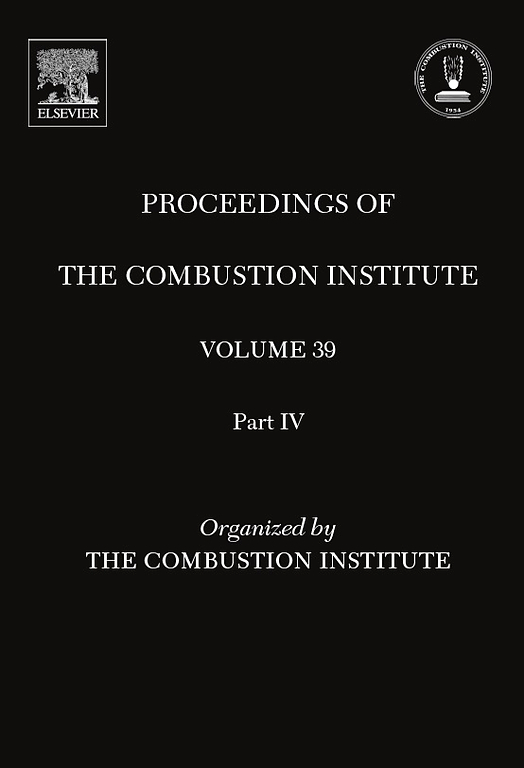Micron-sized iron particles as energy carrier: Cycling experiments in a fixed-bed reactor
IF 5.2
2区 工程技术
Q2 ENERGY & FUELS
引用次数: 0
Abstract
Iron is a promising energy carrier with the potential to store substantial amounts of energy over extended time periods with minimal losses. For instance, the energy from green hydrogen sources can be used to reduce iron oxides, be stored or transported, and thus be regained by exothermic oxidation of the iron. This work explores the influence of oxygen partial pressure and temperature on the oxidation process in a fixed-bed reactor. Furthermore, the analysis extends to the reduction of oxidized iron particles at varying temperatures. The experimental findings highlight that both oxidation and reduction progress through the fixed-bed reactor as distinct reaction fronts. In the oxidation process, the speed of the reaction front increases with rising oxygen content and temperature, resulting in a higher reaction rate and a correspondingly increased heat release. Conversely, the reaction rate for reduction experiences a notable decrease for 600°C and 700°C. The reprocessability of the iron powder was validated for up to 16 cycles under the optimal reaction conditions established. Furthermore, it was demonstrated that the performance improves with an increasing number of cycles. This improvement is attributed to the formation of pores due to density changes and the subsequent creation of a larger surface area, mitigating the negative effects of sintering and agglomeration.作为能量载体的微米级铁颗粒:固定床反应器中的循环实验
铁是一种前景广阔的能量载体,具有在较长时间内以最小损耗储存大量能量的潜力。例如,来自绿色氢源的能量可用于还原氧化铁、储存或运输,从而通过铁的放热氧化重新获得。这项研究探讨了氧分压和温度对固定床反应器中氧化过程的影响。此外,分析还扩展到氧化铁颗粒在不同温度下的还原过程。实验结果表明,在固定床反应器中,氧化和还原都是作为不同的反应前沿进行的。在氧化过程中,反应前沿的速度随着氧气含量和温度的升高而增加,从而导致反应速率增加,放热量也相应增加。相反,在 600°C 和 700°C 温度下,还原反应速率明显下降。在确定的最佳反应条件下,铁粉的可再加工性经过了长达 16 个循环的验证。此外,实验还证明,随着循环次数的增加,性能也会提高。这种改善归因于密度变化形成的孔隙以及随后产生的更大表面积,从而减轻了烧结和结块的负面影响。
本文章由计算机程序翻译,如有差异,请以英文原文为准。
求助全文
约1分钟内获得全文
求助全文
来源期刊

Proceedings of the Combustion Institute
工程技术-工程:化工
CiteScore
7.00
自引率
0.00%
发文量
420
审稿时长
3.0 months
期刊介绍:
The Proceedings of the Combustion Institute contains forefront contributions in fundamentals and applications of combustion science. For more than 50 years, the Combustion Institute has served as the peak international society for dissemination of scientific and technical research in the combustion field. In addition to author submissions, the Proceedings of the Combustion Institute includes the Institute''s prestigious invited strategic and topical reviews that represent indispensable resources for emergent research in the field. All papers are subjected to rigorous peer review.
Research papers and invited topical reviews; Reaction Kinetics; Soot, PAH, and other large molecules; Diagnostics; Laminar Flames; Turbulent Flames; Heterogeneous Combustion; Spray and Droplet Combustion; Detonations, Explosions & Supersonic Combustion; Fire Research; Stationary Combustion Systems; IC Engine and Gas Turbine Combustion; New Technology Concepts
The electronic version of Proceedings of the Combustion Institute contains supplemental material such as reaction mechanisms, illustrating movies, and other data.
 求助内容:
求助内容: 应助结果提醒方式:
应助结果提醒方式:


